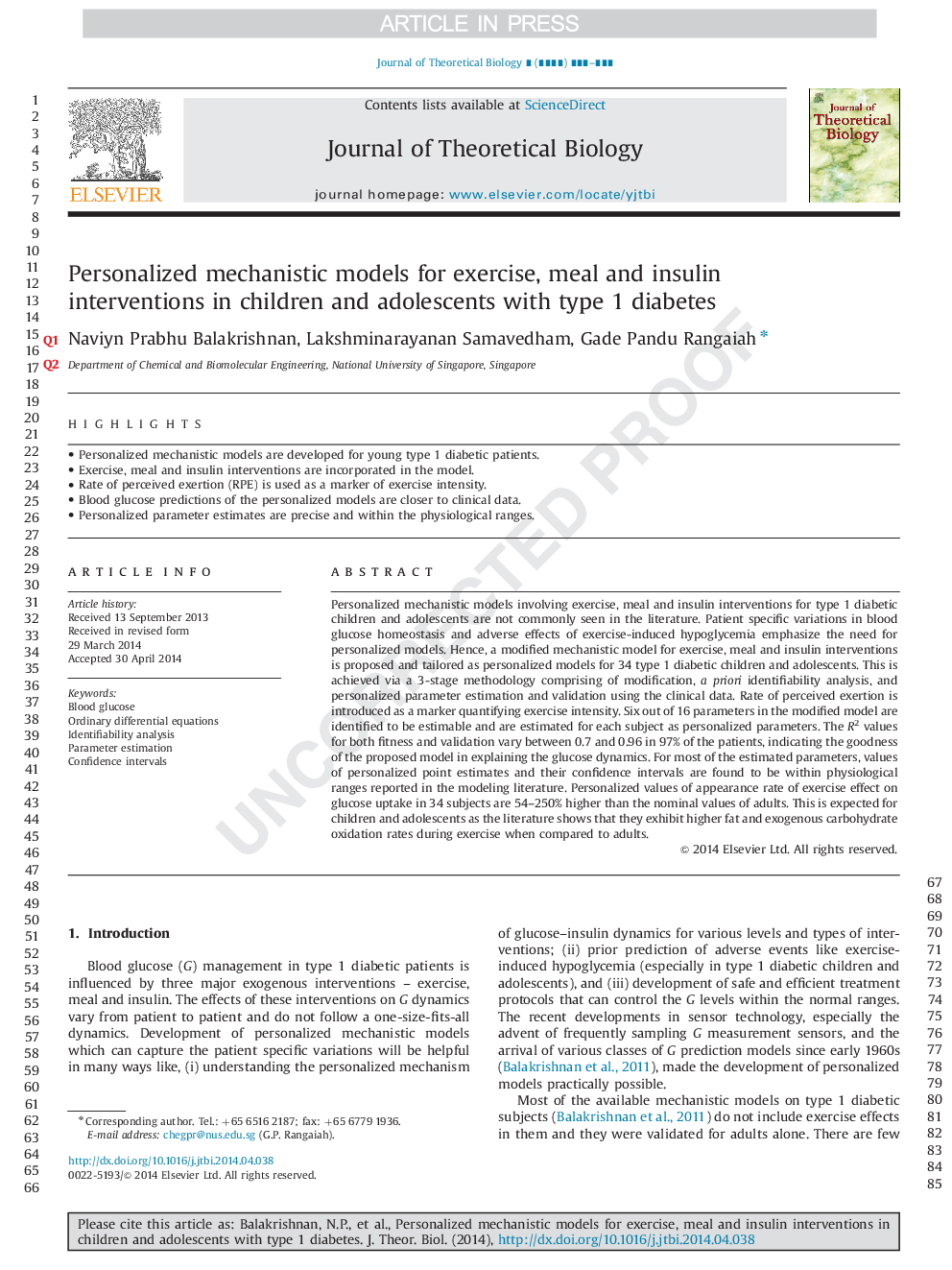| Article ID | Journal | Published Year | Pages | File Type |
|---|---|---|---|---|
| 6370282 | Journal of Theoretical Biology | 2014 | 12 Pages |
Abstract
Personalized mechanistic models involving exercise, meal and insulin interventions for type 1 diabetic children and adolescents are not commonly seen in the literature. Patient specific variations in blood glucose homeostasis and adverse effects of exercise-induced hypoglycemia emphasize the need for personalized models. Hence, a modified mechanistic model for exercise, meal and insulin interventions is proposed and tailored as personalized models for 34 type 1 diabetic children and adolescents. This is achieved via a 3-stage methodology comprising of modification, a priori identifiability analysis, and personalized parameter estimation and validation using the clinical data. Rate of perceived exertion is introduced as a marker quantifying exercise intensity. Six out of 16 parameters in the modified model are identified to be estimable and are estimated for each subject as personalized parameters. The R2 values for both fitness and validation vary between 0.7 and 0.96 in 97% of the patients, indicating the goodness of the proposed model in explaining the glucose dynamics. For most of the estimated parameters, values of personalized point estimates and their confidence intervals are found to be within physiological ranges reported in the modeling literature. Personalized values of appearance rate of exercise effect on glucose uptake in 34 subjects are 54-250% higher than the nominal values of adults. This is expected for children and adolescents as the literature shows that they exhibit higher fat and exogenous carbohydrate oxidation rates during exercise when compared to adults.
Keywords
Related Topics
Life Sciences
Agricultural and Biological Sciences
Agricultural and Biological Sciences (General)
Authors
Naviyn Prabhu Balakrishnan, Lakshminarayanan Samavedham, Gade Pandu Rangaiah,
